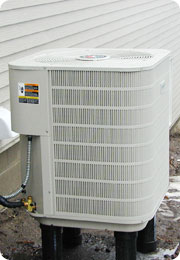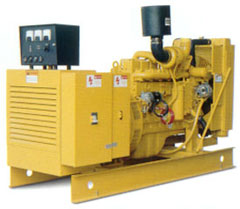McLeod Co-op Power offers load management programs to reduce energy demand during peak times and energy purchase costs for both members and the Co-op.
Call 1.800.494.6272 to speak with one of our Energy Specialists to learn more about these cost-saving programs.
Dual Fuel
Dual Fuel is a program that uses electric heat as the primary heat, with an auxiliary or backup source of heat that can be used during peak energy demand periods. Dual Fuel systems enable us to control our peak demand by interrupting electric service to your heating system while the auxiliary heating system takes over automatically, ensuring you are kept warm and cozy (control times are up to 400 hours per year maximum).
- An electric heating system (at least 5 kW min. capacity) is used as the primary heating source and will receive the reduced Off-Peak electric rate.
- A fully automatic fossil fuel heat source is used as the back-up heating source.
The installation of the off-peak control equipment needs to be performed by a licensed electrician.
Storage Heating
Members participating in the Storage Heating Program have electric heat that operates on a daily schedule of 8-hours on/16-hours off.
- Storage heating systems deliver heat to homes, shops, and commercial buildings 24 hours a day, even though they do not use electricity during the day. By using electricity only during non-peak hours, all storage loads qualify for the low off-peak electric rates.
- Load management rebates are currently $50.00 per kW installed.
Storage Water Heating
Off-peak Storage Water Heating involves your water being heated during off-peak hours when electrical demand is at a minimum. To accomplish this, water heaters are interrupted for 16 hours daily.
- Water heater charges for eight hours from:
- May – September: Recharge between 11 p.m. – 7 a.m. (Monday-Friday)
- October – April: Recharge between 10 p.m. – 6 a.m. (Monday-Friday)
- Weekends and holidays: Minimal control except for peak conditions, high energy prices or system emergencies.
- Minimum of a 100-gallon water heater capacity – can be achieved with an 80-gallon tank and mixing valve.* (80-gallon minimum requirement)
- Hot Water Recirculation units (gravity or pumped) are not recommended to be used with the water heating programs.
- $400 Rebate for new enrollments.
* The mixing valve, when installed on the discharge hot water pipe of the water heater, is designed to mix cold and hot water to deliver the desired temperature at the faucet. McLeod Coop recommends installing, setting, and maintaining the mixing valve to the manufacturer’s specifications.
Cycled Air Conditioning
By participating in the Cooperative’s Cycled Air Conditioning Program you can save money on cooling your home.

If you allow the co-op to cycle your air conditioner or heat pump for approximately 15 minutes on, then 15 minutes off, during peak hours on the hottest summer days, you can save 50% on metered cooling costs or receive a summer monthly credit.
Heat pumps are a year-round load and may be installed on an off-peak meter. Air conditioning may only be installed on the off-peak rate when combined with another controlled load such as electric heat or water heating. If you only control an air conditioner the Cooperative provides $5.00 per summer month of peak shaver credit.
*The Peak Shaver Credit requires a monthly minimum of 300 kWh on the account.
Cycling your air conditioner reduces peak demand and helps us provide electricity during the heaviest demand times.
Cycling is able to maintain a comfortable temperature within your home while it is saving you money on cooling.
Call the Cooperative for details on the Cycled Cooling Program.
Rebates are currently available for heat pumps.
Generator Back-up
Generator Back-up Program for Farm & Commercial Customers

Farm and commercial accounts with the average monthly demand of 50 kW or greater, may participate in the Peak Alert Program. Customers must be able to curtail their electric load upon peak control notification. Customers with automatic generators rely upon their generator to supply electric power during control times. Control usually occurs on the hottest summer days or coldest winter nights for 4-10 hours per interruption, however, it can occur anytime additional capacity is needed by our power supplier.
The load control receiver is supplied by the Cooperative. The customer’s electrician makes connections to the generator.
Farm and commercial customers interested in this program should contact the Energy Management Specialists at McLeod Cooperative Power for details on the rate and program requirements.
Electric Vehicle Charging
McLeod Co-op Power also is currently offering a $500.00 rebate for installing a Level 2 charger on the Co-op’s Storage/Off Peak Program. The Off-Peak Program provides discounted energy pricing for vehicles charging during these off-peak times.
- A 240volt hard wired Level II charger is required and will operate daily during Off-Peak hours from 11 p.m. – 7 a.m. (daily).
- Weekends and holidays are minimized to no control except for peak conditions, high energy prices or system emergencies.
Another program through McLeod Co-op Power for Level 2 off peak controlled EV’s is the Minnesota REVOLT program. This program is an additional offering that the level 2 chargers on our off peak metering can sign up for. This is a free enrollment and guarantees that all the energy (up to 10,000 kWh/yr., 50,000 kWh/5yrs) used by the electric vehicle will be produced by “Green Energy”.
To learn more about EVs:
- Visit the U.S. Department of Energy’s Plug-In Electric Vehicle Handbook for Consumers (PDF).
- For more information on how to enroll in Revolt, visit mnrevolt.com.
